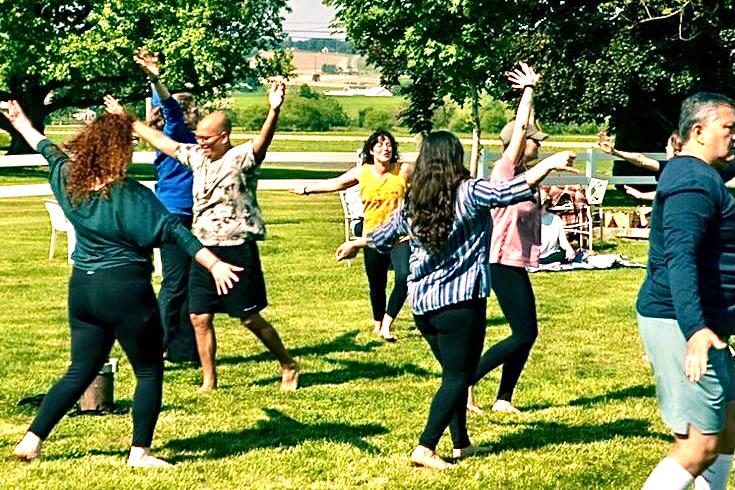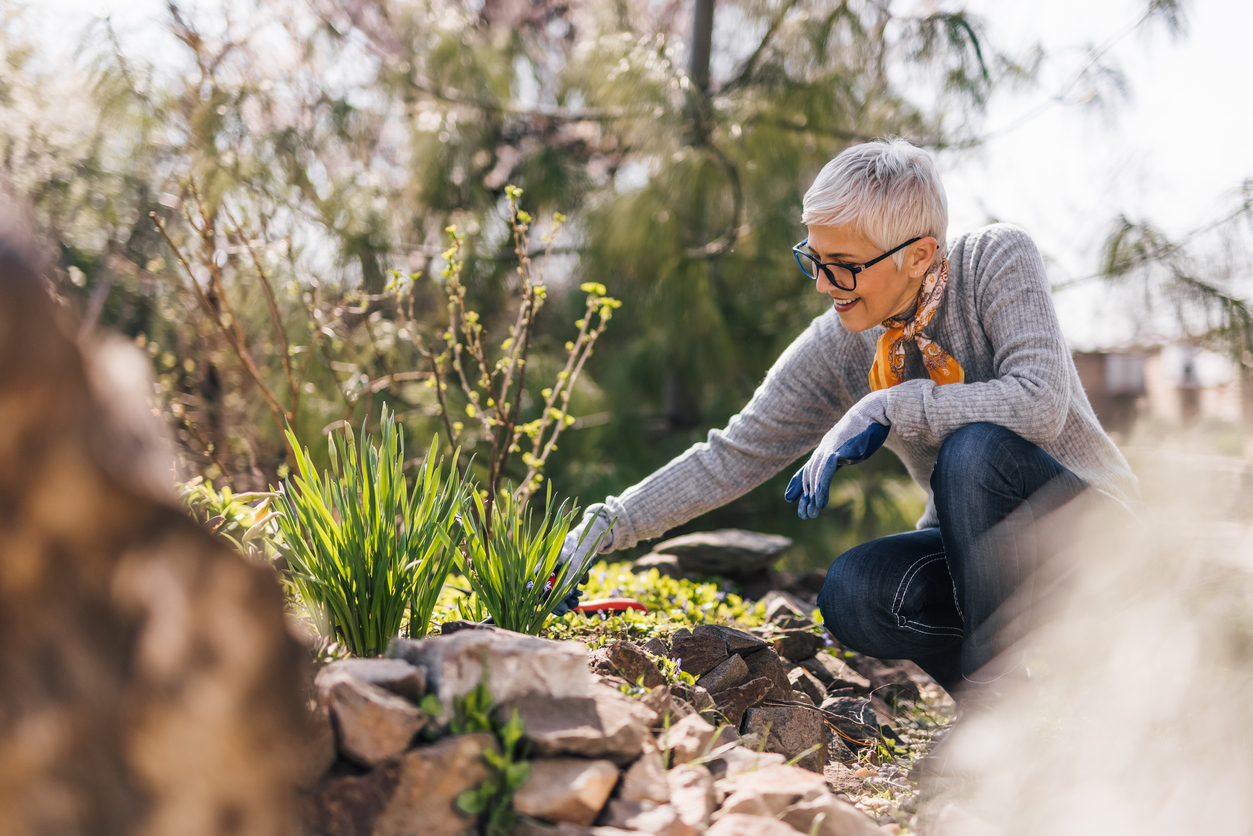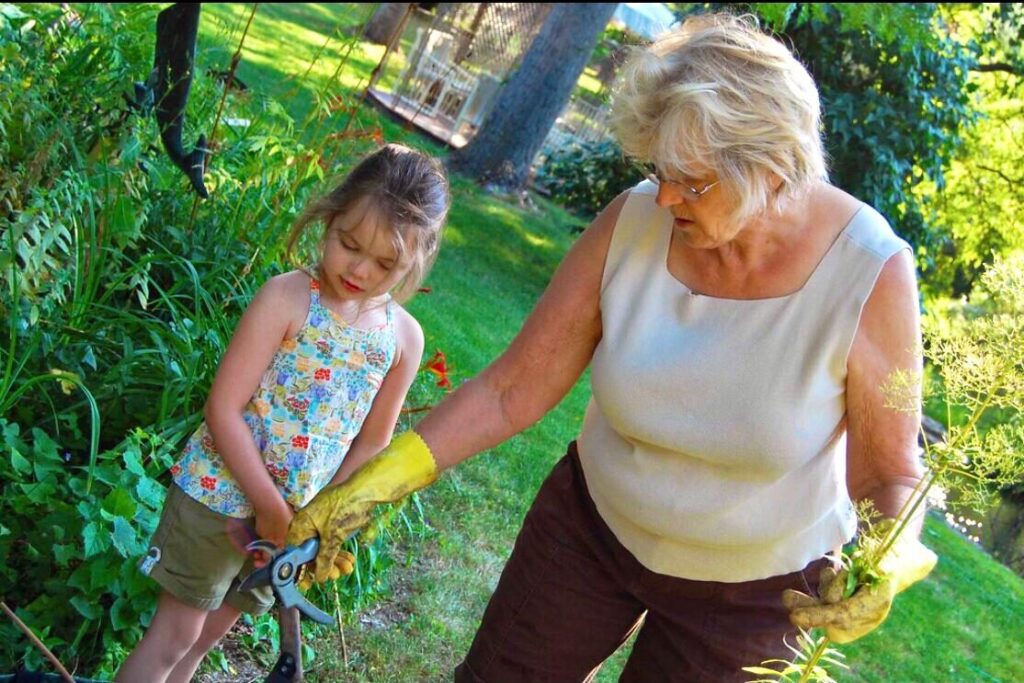1. Move Naturally

If you ever wonder how some people live past a hundred, it often begins with how they move every day. In centenarian communities, exercise is not a chore but part of life. People walk to run errands, garden for hours, or do simple tasks that keep the body active without even thinking about it. This natural movement keeps muscles strong, joints flexible, and hearts healthy. You don’t need a gym membership or fancy equipment. Simple habits like taking stairs, gardening, or walking after meals create gentle but consistent activity that adds up over a lifetime.
2. Find Your Purpose

Living a long life often starts with knowing why you wake up each morning. People in centenarian communities have a clear sense of purpose that guides them through daily life. This purpose can be caring for family, pursuing hobbies, or contributing to the community. Feeling useful and needed gives energy and focus that keeps both mind and body engaged. It is not about fame or fortune but about meaning. Even small actions like tending to a garden or mentoring others can give life direction. A strong sense of purpose can add years by motivating healthy habits and emotional resilience.
3. Slow Down and Relax

One thing that stands out among people who live a long time is how they handle stress. Centenarians take time to slow down, whether through afternoon naps, quiet reflection, or simple routines that calm the mind. Relaxation is a daily habit, not just a rare treat. Pausing to breathe, enjoying nature, or spending quiet moments with loved ones reduces tension and supports mental clarity. Life does not have to be rushed to be productive. Consistently slowing down helps prevent chronic stress, improves sleep, and gives the body a chance to repair itself, which contributes to long-term health and longevity.
4. Eat Until You Are Satisfied

A common habit in long-lived communities is stopping eating before feeling completely full. This practice helps maintain a healthy weight and prevents overloading the digestive system. Meals are often smaller and eaten slowly, allowing the body to register satisfaction. People prioritize wholesome, natural foods rather than processed snacks. They enjoy the flavors of vegetables, grains, and legumes without feeling deprived. Learning to recognize when enough is enough becomes second nature. This simple habit reduces inflammation and keeps energy steady throughout the day. Moderation in eating allows the body to thrive and can make a noticeable difference over decades.
5. Embrace Plant-Based Foods

Longevity is often linked to eating mostly plant-based meals. Centenarians enjoy beans, vegetables, fruits, and whole grains, with meat being an occasional treat rather than a staple. This type of diet provides essential vitamins, minerals, and antioxidants that help prevent disease. Plant-based foods are filling yet gentle on the body, supporting digestion and metabolism. By focusing on nature’s bounty, people maintain energy and reduce the risk of chronic conditions. Meals are colorful, fresh, and satisfying. Shifting toward more plant foods encourages balance and helps sustain long-term health, offering both nourishment and pleasure in everyday eating habits.
6. Enjoy Moderate Drinks

Some of the longest-lived people enjoy small amounts of alcohol, usually wine, in moderation and with meals. Drinking moderately can encourage social connections, relaxation, and enjoyment without harming health. It is the company and conversation around drinks that matter as much as the drink itself. Celebrating moments with friends and family contributes to emotional wellbeing and a sense of belonging. However, moderation is key to avoid negative effects on the liver and heart. Centenarians often treat alcohol as part of a shared ritual rather than a habit, keeping it balanced and enjoyable while maintaining focus on overall health and lifestyle.
7. Be Part of a Community

Connection with others is one of the strongest predictors of a long life. Centenarians are usually deeply involved in social circles, clubs, or faith communities. Belonging to a group offers support, companionship, and shared experiences. It helps prevent loneliness and keeps the mind engaged. People thrive when they feel they are part of something bigger than themselves. Regular interaction with friends and neighbors strengthens mental health, encourages activity, and provides emotional comfort. A strong community provides both help in times of need and joy in everyday life. Social bonds are a natural form of longevity insurance that adds years and meaning.
8. Put Family First

Family connections are central to long-lived communities. Centenarians often live near children, grandchildren, or extended family members. They invest in nurturing relationships and feel valued for their contributions. Meals are shared, stories are told, and daily routines include time spent together. Family provides emotional support, purpose, and a sense of continuity. These connections reduce stress and foster resilience. Caring for loved ones and receiving care in return builds cycles of support that benefit both health and happiness. Strong family ties help people feel anchored, reducing isolation and encouraging habits that support a longer, fuller life.
9. Surround Yourself with the Right People

Longevity is influenced by the company you keep. Centenarians tend to have friends who support healthy habits, encourage activity, and provide emotional stability. Positive social circles reduce stress, inspire motivation, and reinforce good choices. Being around people who lift you up rather than bring you down nurtures resilience and wellbeing. Friendships are often formed around shared routines, hobbies, and meals. A supportive social network helps people maintain balanced lifestyles and makes adopting healthy habits enjoyable. Choosing friends wisely can be just as important as diet or exercise in shaping the quality and length of life.
10. Focus on Whole Foods

Eating whole foods is a cornerstone of long life. Centenarians consume natural, unprocessed foods, emphasizing grains, vegetables, legumes, and fruits. Processed snacks and sugary treats are rare. Whole foods supply vitamins, minerals, fiber, and antioxidants essential for body repair and immune function. Meals are flavorful, filling, and satisfying, often prepared from scratch. Prioritizing whole foods over convenience encourages mindful eating and supports stable energy. This diet reduces risk of chronic diseases and promotes healthy weight management. Simple, wholesome ingredients become a way of life, providing consistent nourishment that sustains health and vitality for decades.
11. Add Herbs and Greens

Many centenarians include herbs and leafy greens in their daily meals. These plants are packed with nutrients, antioxidants, and natural compounds that support heart, brain, and immune health. Meals are often flavored with herbs instead of salt or processed sauces. Foraging or growing vegetables and herbs strengthens connection with food sources and encourages gentle physical activity. Herbs also bring comfort and ritual into daily meals, enhancing enjoyment. Incorporating greens and herbs into every dish is a small but powerful habit. Over time, these simple additions contribute to reduced inflammation, better digestion, and overall longevity.
12. Control Portions Mindfully

Along with stopping at 80 percent full, centenarians practice mindful portion control. They pay attention to hunger cues and avoid eating out of boredom or stress. Portions are moderate, and meals are spaced throughout the day to give the body time to digest. Mindful eating improves energy, maintains healthy weight, and supports digestion. It also allows people to savor flavors and enjoy each meal fully. This habit encourages balance and prevents overconsumption that can lead to chronic illness. Learning to eat in tune with the body is a practical and sustainable approach to long-term health.
13. Eat Slowly and Together

Meals in centenarian communities are often social events. People take time to eat, chew thoroughly, and enjoy conversation with family or friends. Eating slowly helps digestion, increases satisfaction, and prevents overeating. Sharing meals builds relationships and emotional wellbeing. The rhythm of preparing and eating food together creates connection and a sense of belonging. Mealtime is not rushed or distracted by screens. Slowing down and sharing food supports both physical and mental health. This practice encourages mindful eating, fosters gratitude, and reinforces social bonds that nurture a long and balanced life.
14. Drink Water and Herbal Teas

Centenarians prioritize hydration with water, herbal teas, and sometimes light coffee. Drinking throughout the day supports digestion, kidney function, and energy levels. Herbal teas offer antioxidants and soothing compounds that help the body repair itself. Hydration is approached simply, often accompanying meals or morning routines. Unlike sugary drinks or excessive caffeine, water and natural teas provide essential nourishment without strain. This habit keeps people alert, maintains skin and joint health, and reduces fatigue. Simple hydration routines, combined with mindful drinking, play an essential role in daily health practices that accumulate into long-lasting wellness over decades.
15. Rest and Sleep Well

Adequate sleep is a common habit among long-lived people. Centenarians often maintain regular sleep schedules and may include short naps during the day. Sleep supports immune function, brain health, and emotional balance. They prioritize rest as part of a daily rhythm rather than an indulgence. Adequate rest also reduces stress and improves energy for daily activity. Sleeping well allows the body to repair itself and prevents chronic health issues. Developing a consistent routine, avoiding late-night overstimulation, and embracing quiet moments supports longevity. Regular, restorative sleep is a foundation for maintaining both physical and mental wellbeing across decades.
16. Celebrate in Moderation

Celebrations and special foods are enjoyed but never in excess. Centenarians savor treats occasionally and focus more on the experience than quantity. This approach prevents overindulgence while still allowing pleasure and social connection. Moderation teaches balance and helps maintain health over the long term. Eating special foods mindfully becomes a ritual rather than a habit that harms wellbeing. Celebrating life while staying conscious of intake contributes to sustainable health and adds joy without compromise. Enjoying everything in moderation allows for variety and richness in life while supporting body function and longevity naturally.
17. Build Rituals Around Connection

Regular rituals strengthen social bonds and reduce stress. Centenarians may gather for meals, tea, prayer, or simple chats with neighbors. These routines encourage consistency, emotional support, and shared joy. Rituals provide structure and give life meaning beyond daily tasks. They reduce isolation and promote mental health. Repeated positive experiences help people feel secure and connected. Rituals create a rhythm that balances activity, relaxation, and social interaction. Engaging in consistent, meaningful activities with others contributes to a sense of belonging, purpose, and wellbeing that supports a long, fulfilling life.
18. Live Where Movement Happens Naturally

The environments of centenarians encourage movement without effort. Hilly towns, gardens, and walkable streets lead to gentle daily activity. People walk, climb, and carry objects naturally. The landscape integrates exercise seamlessly into life. This lifestyle promotes strong bones, heart health, and flexibility. Staying active feels natural rather than forced. Being in a place that encourages walking, gardening, or chores reduces sedentary habits and supports overall fitness. Nature, community design, and daily routines work together to make movement a habit. Small, regular activity in the environment adds up over years and plays a crucial role in longevity.
19. Grow or Gather Food

Many long-lived people maintain gardens or forage for fresh food. This connects them to nature, encourages physical activity, and ensures access to nutrient-rich ingredients. Gardening provides movement, fresh air, and purpose, while foraging introduces variety and flavor. Preparing meals from self-grown produce enhances satisfaction and creates a routine of care. This practice also supports mental wellbeing, reduces stress, and encourages a healthier diet. Being involved in food production gives a sense of accomplishment and reinforces connection to the earth. Simple acts of growing or gathering food contribute to long-term health and a mindful lifestyle.
20. Pause Before Eating

Centenarians often take a moment before meals to pause, reflect, or express gratitude. This habit helps avoid mindless eating and supports mindful consumption. Pausing creates awareness of hunger and fullness cues. It also encourages a calm, thoughtful approach to meals. Incorporating small rituals before eating builds consistency and promotes digestion. Mindful practices around food enhance enjoyment and reduce stress. Taking time to pause contributes to better portion control and more satisfying meals. This simple act fosters respect for the body and food, helping to maintain balance and support long-term health naturally.
21. Connect with Younger Generations

Long-lived communities thrive when older adults stay involved with younger family members. Mentoring, sharing stories, or living near grandchildren provides purpose and emotional support. Intergenerational relationships keep the mind active and create joy and meaning. These connections foster continuity, social engagement, and motivation to maintain healthy habits. Spending time with younger people also brings energy and perspective that nurtures wellbeing. Being valued by younger generations contributes to emotional stability and reduces isolation. Regular interaction creates a supportive environment that encourages both physical and mental health, reinforcing the habits that help people live longer and more fulfilled lives.
22. Keep Friends Who Support Health

Centenarians often maintain friendships that encourage good habits, social engagement, and emotional balance. Friends influence choices, provide motivation, and offer companionship. Surrounding yourself with people who care about wellbeing reinforces daily routines and encourages consistency. Social support reduces stress, promotes happiness, and fosters resilience. Friends often share meals, walks, or activities that enhance both physical and mental health. Choosing the right circle creates a positive feedback loop for lifestyle habits. Consistent connection and encouragement help people stay active, eat well, and remain emotionally resilient, contributing to long-lasting health and longevity.
23. Let Purpose Guide Daily Life

A sense of purpose goes beyond motivation. In centenarian communities, daily habits reflect a commitment to meaningful activities, whether family care, volunteering, or personal projects. Purpose guides actions, promotes consistency, and strengthens resilience against stress. It gives people a reason to maintain healthy routines and stay socially engaged. Feeling useful and needed keeps the mind sharp and supports emotional wellbeing. Purposeful living encourages intentionality in choices, from diet to exercise to relationships. Having clear reasons for daily actions provides structure, focus, and satisfaction, forming a cornerstone of long, vibrant life.
24. Embrace Balance in All Things

Balance is key in centenarian lifestyles. Meals, socializing, work, and rest are approached in moderation. People enjoy treats, connect with others, and pursue interests without extremes. Daily routines combine activity with relaxation, nourishment with enjoyment, and solitude with connection. This harmony supports physical, mental, and emotional health over decades. Balance allows people to experience life fully while reducing the risk of chronic stress or illness. Focusing on equilibrium creates sustainable habits, contributing to long-term resilience and contentment. Life becomes manageable, enjoyable, and healthful when every day includes a mix of activity, rest, nourishment, and connection.
25. Build Longevity Into Everyday Life

The greatest lesson from centenarians is that longevity is built through daily habits. Movement, purpose, connection, balanced nutrition, and mindful routines create a life that supports health naturally. These are not shortcuts but small, consistent actions that compound over time. Incorporating even a few practices from long-lived communities can enhance wellbeing. Life becomes richer, calmer, and more fulfilling when these habits are embraced. Longevity is not a single secret but the sum of daily choices that nurture body, mind, and relationships. Start small, remain consistent, and you may find your life extending with quality and meaning.
This story 25 Longevity Lessons from Centenarian Communities was first published on Daily FETCH


